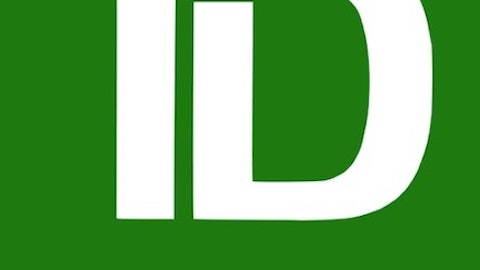Citigroup has achieved much since the 2008-2009 banking crisis, including becoming even better diversified regionally, as well as in terms of its line of outstanding banking products and services in all major market segments of consumer and business banking.
However, ironically, it is precisely these factors, namely the strong dependency of Citigroup Inc (NYSE:C)‘s sales and profits on international markets and the associated dollar exchange risks associated with this large international exposure, that now create a situation in which Citigroup faces more and stronger risks than its peers.
For example, Wells Fargo & Co (NYSE:WFC), which I reviewed and recommended as a buy, generates a much lower share of its revenue and profit from international markets, being more focused on the domestic U.S. business. Even Bank of America Corp (NYSE:BAC)‘s current short-term volatility caused by the uncertainty surrounding American International Group Inc (NYSE:AIG)‘s objections to the $8. billion Countrywide Financial settlement will probably be short-lived.
On the other hand, I strongly believe Citigroup Inc (NYSE:C) now faces such potential risks that the future price appreciation will be much slower, if there is any price growth for the rest of this year. In any case, the stock is likely to trade in a more volatile fashion for the rest of the year. Here is why:
Major risks Citigroup is facing
1. International markets dependency
Citigroup Inc (NYSE:C)‘s most recent quarterly financial report reveals that it generates almost 54% of its revenues from overseas markets, which are defined as outside of North America; so, even Canada and Mexico are included in the domestic revenue bucket, which represents only 46% of Citigroup’s revenue.
Furthermore, this report for the quarter ending March 31 reveals that net income decreased 14%, primarily reflecting lower revenues, higher expenses and higher effective tax rates on international operations. So, the international operations were a drag on the company’s performance, and are likely to not only continue to negatively impact Citi’s numbers but to do so with even greater intensity, if the recent forecasts for the lower international GDP growth outlook materialize. Some recent individual downward adjustments to individual countries’ growth forecasts, such as those of Germany and China, don’t exactly spell clear skies ahead.
As if the above headwinds were not enough, Citi and other major banks face a slightly lower 2013 U.S. growth forecast of 1.9% from the previous 2.1%.
2. Currency exchange risks
In connection with Citi’s strong international exposure, the recent sell-off in international currencies doesn’t bode well for Citigroup Inc (NYSE:C)’s next earnings release. A 10% decline in a basket of emerging market currencies would mean a decrease of more than 5% in Citigroup’s total revenue, other factors being equal. Citi recorded currency losses of more than $0.7 billion in the first quarter of 2013. Total accumulated currency losses amount to $10.6 billion. The primary contributors to the negative $0.7 billion adjustment for the first quarter were (in order of impact) the Mexican peso, Japanese yen, British pound and Korean won.

The international currency adjustments are recorded in the balance sheet and reported as part of the “Accumulated Other Comprehensive Income” (or loss) instead of the annual and quarterly income statement. So, the currency fluctuations don’t directly impact Citi’s income. However, thanks to being recorded in the balance sheet and being part of the Tier 1 ratio, they can negatively weigh on Citi’s efforts to improve its Tier 1 ratio and overall reputation.
Impact on Tier 1 capital ratio
On March 31, 2013, Citi’s estimated Basel III Tier 1 Common Ratio was 9.3%, compared to an estimated 8.7% on December 31, 2012. However, the negative currency adjustments slowed down the effort.
Key takeaways
I am bullish in Citigroup Inc (NYSE:C) over the long-term, as I believe the bank will continue to gradually improve its balance sheet and margins, as well as continue to generate higher revenue and income from well-diversified international sources.
On the other hand, the risks Citigroup is currently facing in terms of its international markets exposure, as well as the associated U.S. dollar currency exchange rate, could very well turn out to be advantages, or drags on Citigroup’s financial results in the upcoming quarters. Therefore, Citigroup poses a greater risk than its peers such as Wells Fargo & Co (NYSE:WFC), JPMorgan Chase & Co. (NYSE:JPM) or Bank of America Corp (NYSE:BAC), once BAC’s Countrywide financial settlement is swept off the table.
Citigroup’s stock is likely to reflect this increased volatility and risk by trading more erratically and sideways, in contrast to its strong performance over the past 12 months.
Martin Vlcek holds a long position in Wells Fargo. The Motley Fool recommends Wells Fargo. The Motley Fool owns shares of Citigroup Inc (NYSE:C) and Wells Fargo. Martin is a member of The Motley Fool Blog Network — entries represent the personal opinion of the blogger and are not formally edited.
The article Citigroup: Strong Currency Headwinds Will Impact Tier 1 Ratio originally appeared on Fool.com is written by Martin Vlcek.
Copyright © 1995 – 2013 The Motley Fool, LLC. All rights reserved. The Motley Fool has a disclosure policy.





